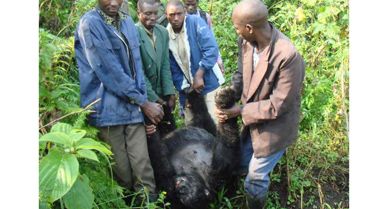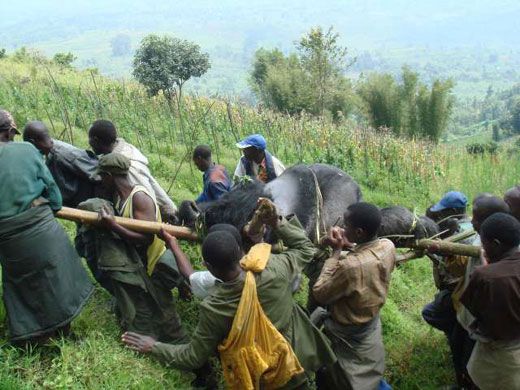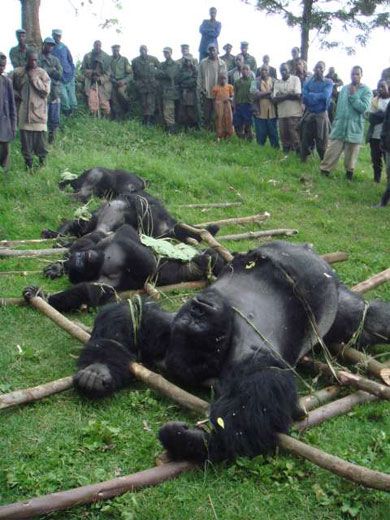UPDATE: State of Emergency
The latest on the endangered mountain gorillas in war-ravaged Congo
/https://tf-cmsv2-smithsonianmag-media.s3.amazonaws.com/filer/gorilla-631.jpg)
For the past several months the raging conflicts between the Congolese Army and forces of ex-general Laurent Nkunda have barred rangers from accessing the rare mountain gorillas in Virunga National Park. This is the longest period the gorillas have been unguarded in the Democratic Republic of Congo (DRC) since 1996, during the height of the country's civil war. Besides obvious threats, the fighting surrounding the gorillas has also prevented veterinarians from reaching the primates to deal with common flu-like diseases.
This is an especially trying time, as this is the worst year on record for gorilla conservation in the region. So far 10 mountain gorillas have been killed and conservationists worry about the fate of the rest of the 72 habituated primates. Some 1,100 rangers protect five national parks in eastern DRC, and now many of them have been displaced, unable to care for the gorillas. Robert Muir, project director for the Goma-based Frankfurt Zoological Society's conservation program, discusses the status of the rangers and gorillas as the fighting rages on.
Can you briefly describe the current political situation?
The current situation is complex and full of the twists and turns and conspiracy that one might expect from a country trying to reorganize its government after 40 years of economic decline followed by 10 years of war.
Having made good progress over the last few weeks, the Congolese army has now lost all the ground they had made following the orders of a General suspected to playing both sides and who has subsequently been sent back to Kinshasa to face charges of high treason. Nkunda has been able to reinforce his position and has now dug himself in. It doesn't look like the Congolese army will be able to defeat him with their current resources and may be forced to resume negotiations. For the time being however, fighting continues in a desperate effort to try and dislodge the rebels from their stronghold.
How is it affecting the gorillas?
We have no idea—this is a major part of the problem, we simply don't know.
What is the status of the park rangers? Do you feel safe?
The rangers are still all camped out at the headquarters of the Park and waiting anxiously. In the meantime we are trying to tackle the problem of illegal charcoal production in the southern sector of the park. This area is occupied heavily by FDLR Interehamwe—Rwandan Hutu Rebels who fled Rwanda following the 1994 genocide. Safety is a relative concept, but yes I feel safe. I keep my ear to the ground and have great support from the rangers and my local staff, as well as my bosses in our Africa Regional Office in Tanzania and our headquarters in Frankfurt.
In addition to the obvious threats to the gorillas, is there anything else that you are worried about?
Yes, there is the threat of the transmission of zoonotic diseases, especially with so many rebels currently occupying the gorilla habitat. There is also the threat of poaching; infants being taken for the international trade in exotics etc, but without any doubt the greatest threat right now for the gorillas is of being caught in incidental crossfire and shot.
How do you and other rangers get your news reports about what's happening?
Straight from the front line—mobile phone or walkie-talkie.
What happened with the emergency response plan?
It was successfully implemented during the first month, and then fighting resumed and many planned activities were suspended. We are now operating a skeleton operation and simply trying to hang in there.
How is the outlook for the future of the gorillas?
Extremely uncertain at this stage. We have no idea what has happened to them over the last four months and we are particularly concerned about the fate of the habituated families who are clearly most at risk.


